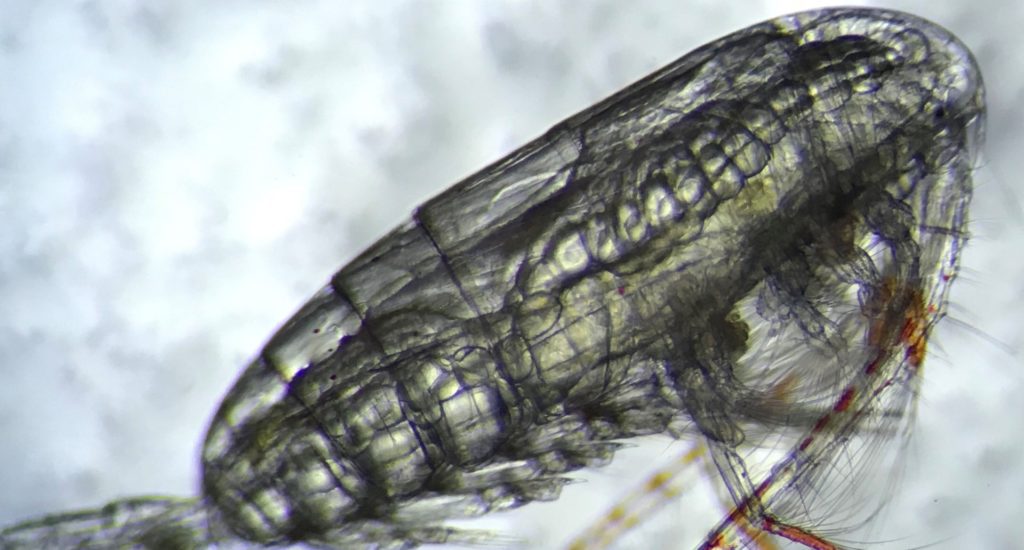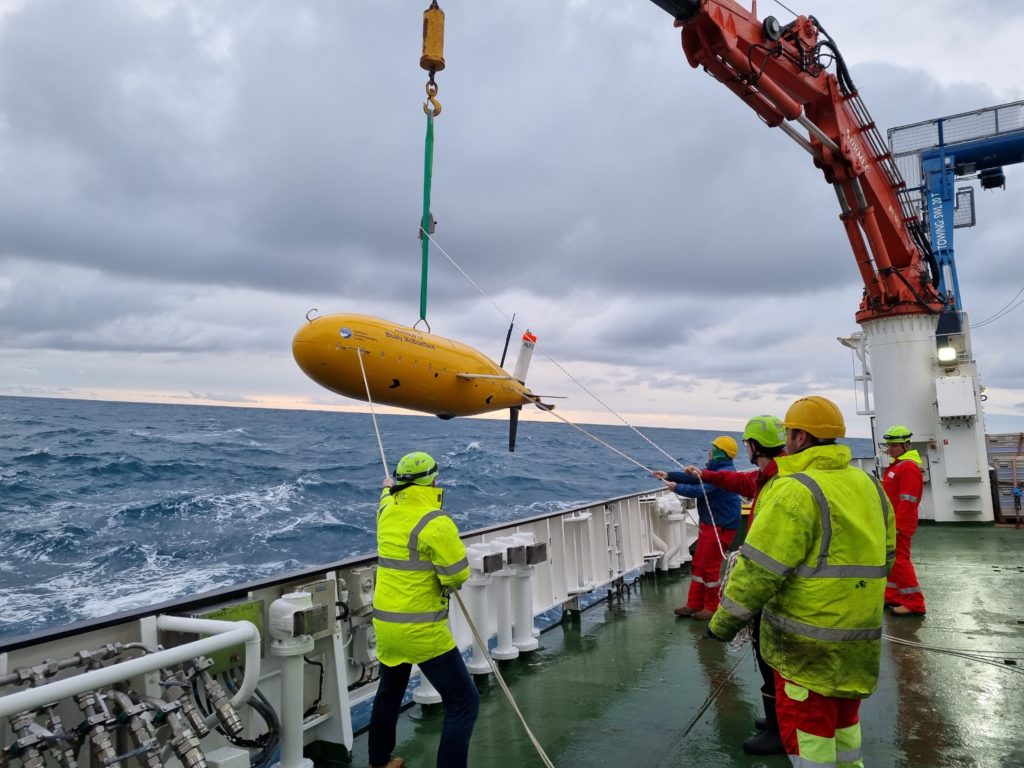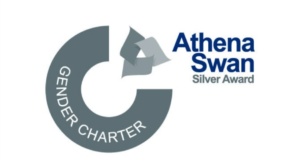Drifting crustaceans could hold key to climate change

Calanus finmarchicus - a copepod that plays a crucial role in the ecosystems of the North Atlantic and Arctic oceans. Credit Prof Daniel J Mayor @oceanplankton
The vast quantity of tiny animals in the global ocean could play a vital role in slowing climate change, scientists say.
The ocean contains a huge variety of zooplankton (literally meaning “drifting animals”) including copepods – tiny crustaceans thought to be the most numerous multi-celled organisms on Earth.
Mostly feeding on micro-algae called phytoplankton, this army of drifting crustaceans may help to store enormous amounts of carbon in the ocean – keeping carbon out of the atmosphere and slowing climate change.
Three ambitious new projects have now been funded by the Natural Environment Research Council (NERC) BIO-Carbon programme to investigate this.
“The global ocean is absolutely teeming with living organisms, many of which are difficult or impossible to see with the naked eye,” said Professor Daniel Mayor from the University of Exeter, which is involved in all three projects.
“But don’t be fooled by their size – these tiny but mighty lifeforms play a crucial role in regulating Earth’s climate by moving carbon out of the atmosphere and shunting it down into the deep ocean where it says for hundreds of years or more.
“A major thrust of the BIO-Carbon research within Exeter is focussing on marine copepods, miniature relatives of crabs and lobsters.
“We’re examining how these important animals influence the ways in which the ocean absorb atmospheric carbon dioxide – and how things may change in the future.”
Recent evidence suggests climate models are not fully accounting for the impact of marine organisms – and this could hinder predictions of the ocean’s role in future carbon storage.
“It’s not just the healthy living marine life that the projects will be studying, but also the sick and virally infected cells,” said Professor Mike Allen, of the University of Exeter and co-founder of Seaweed Generation Ltd, a UK startup which utilises marine robotics for carbon removal.
“In recent years viruses have dominated people’s lives.
“They have an even bigger impact in the ocean, where marine life is busy dying from the impacts of viral infection on a staggering scale.
“With more than a million viruses per millilitre of seawater and a well-mixed soup of potential hosts around them with no way of isolating themselves, the impact of viral infection on global carbon cycling is enormous.”
BIO-Carbon Champion Dr Adrian Martin, from the National Oceanography Centre, said: “With countries striving for net-zero carbon and debate ongoing over whether we can use the ocean to remove excess carbon dioxide from the atmosphere, the need to understand how the ocean stores carbon has never been stronger and we know that marine life plays an important role.
“Partnering with the Future Marine Research Infrastructure (FMRI) project, these three exciting projects will use an ambitious combination of research vessels and marine robots.
“Together they will deliver fundamental insights into how ocean organisms will help it continue to store carbon as the climate changes.”

The projects being funded by the Bio-Carbon programme are:
- Particle transformation and respiration influence on ocean carbon storage (PARTITRICS): Using autonomous underwater vehicles (AUV), this project will seek to answer how organic matter is transformed through interactions between different organisms. It will also look at how this changes depending on depth, location and season, and what the ultimate effect is on ocean carbon storage.
- Coccolithophore controls on ocean alkalinity (CHALKY): This will quantify how diversity and ecology influence the ocean’s ability to absorb carbon dioxide. Part of the CHALKY project will examine the influence of marine viruses and grazing by zooplankton.
- Integrating Drivers of Atlantic Productivity (IDAPro): This will use a combination of ship-based, robotic and satellite platforms to improve the understanding of phytoplankton productivity.
The three projects will also collaborate on a simultaneous mission funded by the Future Marine Research Infrastructure (FMRI) programme.
To coincide with the research ship expedition next spring, the National Oceanography Centre’s famous Boaty McBoatface AUV will embark on a trip from the Iceland to UK, meeting the research ship on the way.
Boaty’s sensors will allow it to provide data to the different projects over a wider area than possible using the ship alone, assisted by multiple smaller robot samplers deployed during the cruise.
BIO-Carbon will utilise both the RRS James Cook and RRS Discovery, world class research facilities operated by the National Oceanography Centre.
The Exeter researchers working on the projects include Professor Mike Allen, Dr Kathryn Cook and Professor Jamie Shutler.
The organisations involved include the National Oceanography Centre, Heriot-Watt University and the University of Southampton.



